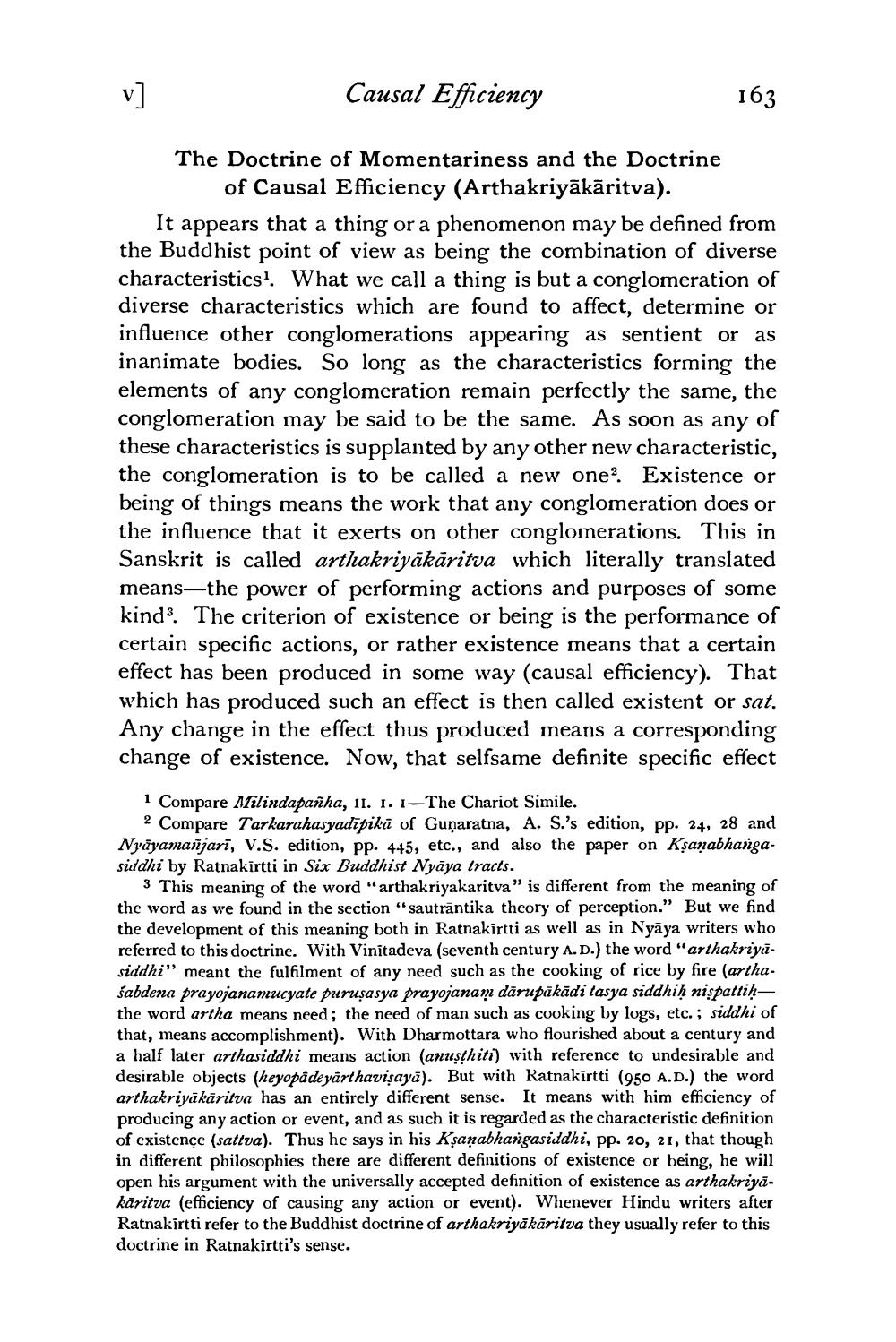________________
Causal Efficiency
163
The Doctrine of Momentariness and the Doctrine
of Causal Efficiency (Arthakriyākāritva). It appears that a thing or a phenomenon may be defined from the Buddhist point of view as being the combination of diverse characteristics? What we call a thing is but a conglomeration of diverse characteristics which are found to affect, determine or influence other conglomerations appearing as sentient or as inanimate bodies. So long as the characteristics forming the elements of any conglomeration remain perfectly the same, the conglomeration may be said to be the same. As soon as any of these characteristics is supplanted by any other new characteristic, the conglomeration is to be called a new one? Existence or being of things means the work that any conglomeration does or the influence that it exerts on other conglomerations. This in Sanskrit is called arthakriyākāritva which literally translated means—the power of performing actions and purposes of some kind?. The criterion of existence or being is the performance of certain specific actions, or rather existence means that a certain effect has been produced in some way (causal efficiency). That which has produced such an effect is then called existent or sat. Any change in the effect thus produced means a corresponding change of existence. Now, that selfsame definite specific effect
1 Compare Afilindapañha, 11. I. 1-The Chariot Simile.
2 Compare Tarkarahasyadīpikā of Gunaratna, A. S.'s edition, pp. 24, 28 and Nyāyamañjari, V.S. edition, pp. 445, etc., and also the paper on Ksanabhangasiddhi by Ratnakirtti in Six Buddhist Nyaya tracts.
3 This meaning of the word "arthakriyākāritva” is different from the meaning of the word as we found in the section “sautrāntika theory of perception." But we find the development of this meaning both in Ratnakirtti as well as in Nyāya writers who referred to this doctrine. With Vinitadeva (seventh century A.D.) the word "arthakriyasiddhi" meant the fulfilment of any need such as the cooking of rice by fire (arthasabdena prayojanamuyate puruşasya prayojanam dārupīkādi tasya siddhih nispattihthe word artha means need; the need of man such as cooking by logs, etc.; siddhi of that, means accomplishment). With Dharmottara who flourished about a century and a half later arthasiddhi means action (anuşthiti) with reference to undesirable and desirable objects (heyopå de yarthavisayā). But with Ratnakirtti (950 A.D.) the word arthakriyākāritva has an entirely different sense. It means with him efficiency of producing any action or event, and as such it is regarded as the characteristic definition of existence (sattva). Thus he says in his Kşanabhangasiddhi, pp. 20, 21, that though in different philosophies there are different definitions of existence or being, he will open his argument with the universally accepted definition of existence as arthakriyakāritva (efficiency of causing any action or event). Whenever Hindu writers after Ratnakirtti refer to the Buddhist doctrine of arthakriyākāritva they usually refer to this doctrine in Ratnakirtti's sense.




